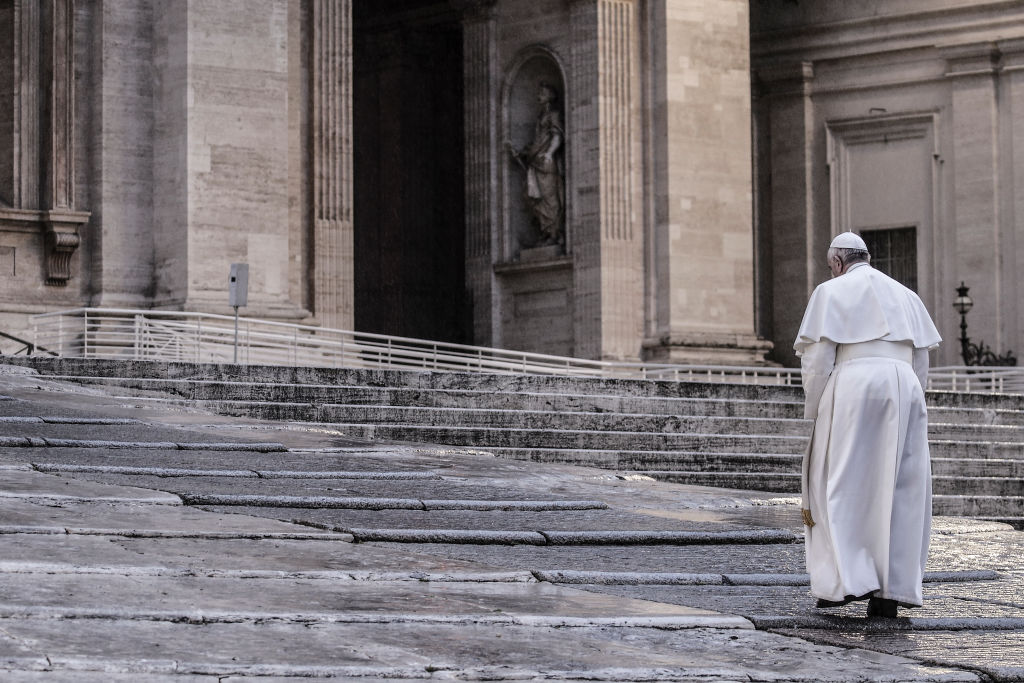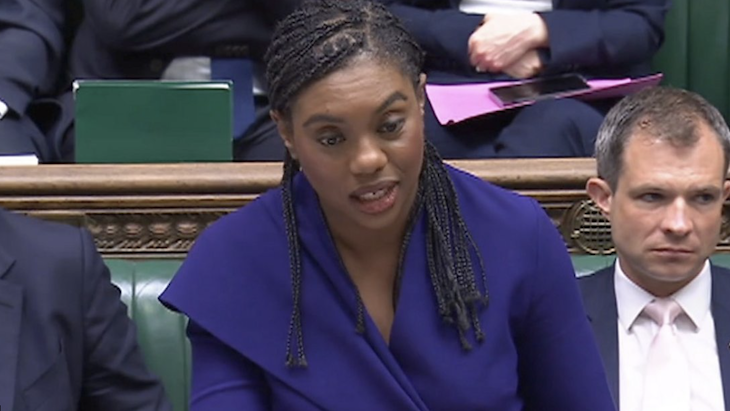As timing goes, a pope simply can’t do better than to die just after Easter Sunday. The moral of the thing hardly needs saying. Francis died in Christ and will share His Resurrection. In fact, that’s exactly what several bishops have been observing today. But Francis also had his Good Friday. He was desperately ill in the Gemelli hospital in February, being very close to death in particular on 28 February. But he pulled through with all the drugs and therapies possible, and went triumphantly on.
For that’s what he did. That popemobile trip round St Peter’s Square yesterday, the meeting with J.D. Vance, the Easter blessing, the composition of his Urbi et Orbi message – which bore his unmistakeable stamp in the stuff about migration and war, though it was read by a cardinal – it was all him. For a man who really, really hated assisted dying and euthanasia, his last message was that we’re valuable right to the end, even when you’re dying on your feet – or rather, in a chair.
There will be lots of critics who will be relieved by his death, and though I didn’t agree with some of his policies and pronouncements, I think the critics are wrong. He got to parts of the culture that other popes didn’t reach. I met the celebrity physicist Carlo Rovelli a few years ago, and he said that his feelings about the Church had radically changed because of Francis.
His informality, his wilful want of style, his simplicity in dress and way of life (personally I love flummery and red shoes, but I can see the other approach has much to be said for it), all said something about how he saw the papacy. He couldn’t bear the trappings of lace and clerical dress – see his intemperate remarks about them in his last book, Hope – and the kind of camp clericalism he associated with it. And that spoke to the culture. That holds too for the way he set much more store by the sins of cruelty and indifference and war than he did by sexual sin.
I went to Rome for his installation as pope and was struck then by the different atmosphere he created at the outset: there was a sense that we had here something new. Granted, Francis’s audit has a significant debit as well as credit side. He never really came to terms with his failures to tackle the junta in Argentina when he was in charge of the Society of Jesus there and Jesuits were in custody; he failed to punish the clerical sexual abuse (which sincerely horrified him) quickly when it came to some of the people he knew; his sanction of blessings for divorced and remarried Catholics and gay people (despite his qualifications about it being the individual, not the situation, that was blessed) was wrong-headed; his approach to the traditional liturgy was stupidly authoritarian… and yet, he got to the essence of the thing, which is the love of God for flawed humanity.
For him, the personal trumped the political. He talked in that book, Hope, about trying to bring transgender people into the life of the Church. Encouraging them as baptismal and confirmation sponsors, saying there was no reason why they should be excluded. And he took quite genuine pleasure in meeting trans groups and gay people. He pushed as far as he could for their inclusion, within the parameters of Church teaching, which he could not have changed. One of his most interesting observations was when a gay man in the BBC programme Pilgrims challenged him as a gay man, and Francis observed that he was getting things the wrong way round; he was focusing on the qualifier, not the substantive. The important thing was that he was a human being and thus infinitely valuable. But he was orthodox on the important things, on the fundamentally important stuff – what we say in the creed – and on the particular things, like traditional devotions such as the Sacred Heart. He was full of surprises that way.
And he fulfilled the ultimate function as pontiff. He kept the faith. That, more than any of the eye-catching stuff, is really what matters.
Catholic theologian Fr Alexander Lucie-Smith joins Damian Thompson on the latest Holy Smoke podcast to discuss what Pope Francis’s legacy might be:








Comments